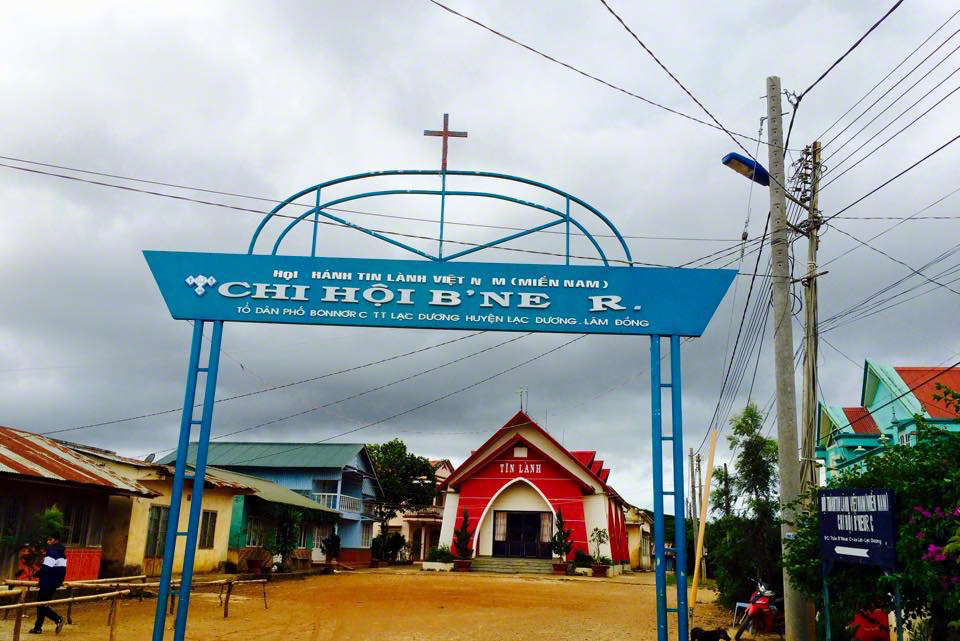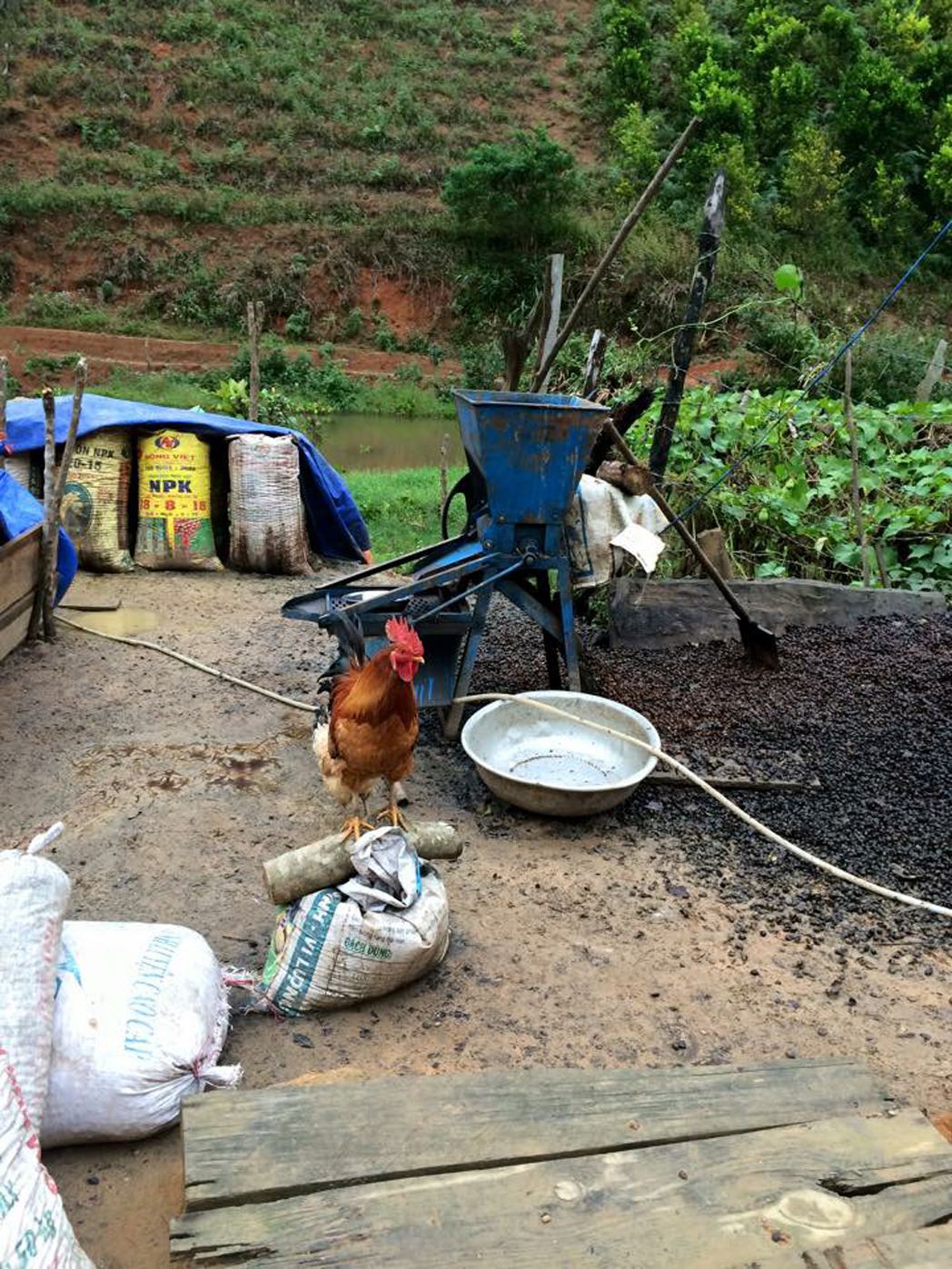My latest origin grip was to Dalat, Vietnam.
We stayed in a nice hotel in the heart of Dalat; Thien An Hotel (highly recommended) and rented a motorbike from the hotel.
Josh Guikema came to meet us at the hotel first thing in the morning. Josh and his wife Rolan CoLieng co-founded K’ho Coffee, a socially responsible cooperative located near Dalat. Josh led us on motorbikes from the hotel to his house, where we met his wife and tried some of the coffee from their farms, processed two different ways, the honey process and the fully washed, or wet process.

In front of Josh’s house was a roughly 5 meter long, three-tiered raised bed* built for drying coffee beans, a process that can take three weeks or more. On the table was coffee still in its hull, processed using both the honey and wet processes. As it was late in their harvest season, there was an additional 1 - 2 tonnes of parchment coffee already fully dried, bagged, and resting in the house, awaiting purchase.
After enjoying our coffees and getting to know one another a bit more, we hopped on the motorbikes and headed north into the mountains of Luoyang, a district of Lam Dong, just north of Dalat.
View Larger Map
Luoyang is a large district in the Central Highlands coffee region and home to several minority tribes, including the K’Ho Cil:
The K'ho Cil people, called 'Montagnards' by French colonialists, are an ethnic minority native to the deep forests of the vietnamese [sic] central highlands traditionally known for their beautiful weavings as well as baskets. The K'ho Cil have steadfastly nurtured heirloom Arabica since the 1860s, when it was introduced by the French. Rolan CoLieng and Josh Guikema founded K'ho Coffee to preserve the unique K'ho Cil culture and the fast eroding agricultural viability of the central highlands with socially and ecologically responsible practices.1
The co-op grows only Arabica coffee, which is rare in Vietnam. A large majority of all coffee produced in the country is the lower-quality robusta. The co-op grows several different high-quality varieties including Yellow Bourbon, Burgundy Bourbon, Amarillo Caturra, Typica, and Catimor.
The week of our visit, the weather had become very damp and wet after a typhoon had gone through the region. This significantly impacts their ability to dry the coffee. Everywhere we went, we saw tarps folded over piles of coffee waiting to be dried. The risk here is that while covered and damp, the coffee can develop mold or if wet enough, it could begin to ferment again. Either mold or uncontrolled fermentation can ruin the coffee.
Part of the wet process is to ferment the beans in water for roughly 24 hours to remove any mucilage adhering to the beans after the skin is removed. Fermentation can be done in purpose-built cement tanks, small plastic buckets, or just about anything that will hold water and beans. We could smell the fermenting beans throughout our trip. If you’ve ever been to a winery during production, you know the smell.

Coffee production by this co-op is very similar to what I’m familiar with in Kintamani, Bali. In both cases, the co-ops are formed by numerous smallholder families with, on average, 2.5 hectares of land for not only coffee, but other crops and of course, livestock. One notable difference is that these farmers in Vietnam have only just started to implement shade trees — avocado trees as opposed to orange trees in Kintamani. Like the farmers in Kintamani, the farmers of Dalat typically process the coffee at home, using small hand-cranked pulpers (pictured below) or sometimes gas-powered pulpers and makeshift fermentation tanks. They’ll then spread the beans on large tarps to dry for weeks until they reach a precise moisture level of between 11 - 12% moisture content.

Later in the trip, in Saigon, we also met with the Director of Business Strategy for K’ho coffee; Nick Ippel, who gave us a run-down of their long-term strategy. The farmers in this co-op are becoming increasingly organized, sharing information on organic fertilizing techniques, better processing methods, and eventually increased bargaining power. This is exactly the kind of progress that leads to a successful, sustainable co-op and of course, quality coffee. What they are finding is that their increases in quality do not necessarily translate directly into increased premiums, at least not immediately. What they are seeing is that an increase in quality increases marketability — they are able to sell quality crops quicker and easier. But the hope is that as they develop a reputation for higher quality they will also develop greater market value in the coffee, for which they can charge a higher premium.
We look forward to our next visit to the farmers in Dalat, as well as a visit from them to the Subak in Kintamani!
